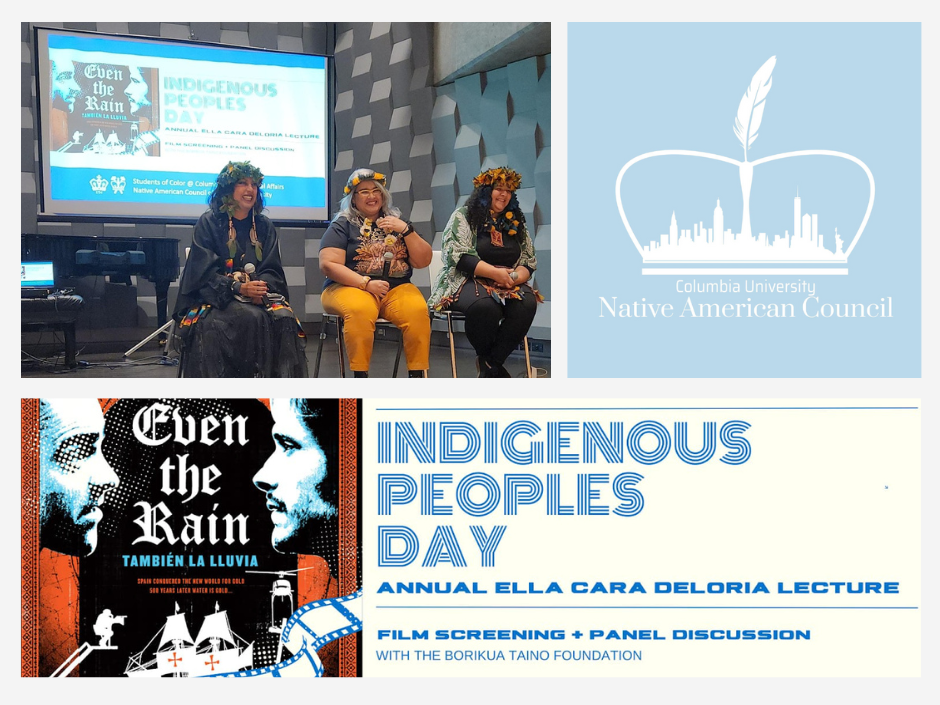Indigenous Bio-Medical Researcher Joseph Yracheta, Meets with the Borikua Taino Foundation to Discuss Native Data Sovereignty
- Alexandria Cruz

- Aug 15, 2023
- 3 min read
Updated: Apr 25, 2024

We had another insightful meeting with Joseph Yracheta, MS, (Pūrepecha – Mexican Indigenous), Indigenous Bio-Medical Researcher at Indigenomics and the Board Vice of President Native BioData Consortium. Joseph has been a friend of our community for a long time and came to us to express his concerns over a research project he learned of happening with Regeneron Pharmaceuticals and Mount Sinai on Caribbean DNA research.
When we first met Joseph in March of 2023, we discussed the challenges Indigenous people face in genealogy tracing due to colonization, sometimes leading to the loss of Indigenous status and difficulties in verifying our heritage. Herein lies the problem faced by many Taino people, we know we have native blood but many of our elders with the knowledge have passed or our status as diasporic peoples leaves us disconnected from our larger familial networks. We are part of what is called the "Vanishing Indian Myth," which began as a way to explain away Natives as assimilated, dead, or our DNA so reduced through intermixing with other races that we cease to exist. Despite this, concerns were raised regarding ownership and misuse of DNA data by larger organizations, especially in the absence of protections or legislation. Indigenous communities must protect their data and negotiate terms with researchers (who benefits from the findings made by science?) and the importance of incorporating Indigenous knowledge and practices into genetic research. We explored the various issues of data privacy, access, and control, and how open-source tools can help us in maintaining data sovereignty.
With that first conversation still fresh for many of us, we delved deeper into the health disparities faced by Indigenous peoples, especially higher rates of certain chronic conditions and the lack of compensation for data collection efforts. Companies such as 23&Me profit from the many Taino people who get tested to confirm what we already know - Taino's are not extinct. We also talked at length about the ethical considerations surrounding DNA ownership and consent, particularly in projects like 1000 Genomes Project, where transparency and governance diversity were identified as crucial areas needing improvement. Joseph let us know he's working with the Human Pangenome Reference Consortium to ensure that future projects like this have more transparency and accountability.
We also explored potential collaborations with activists dedicated to data sovereignty, language revitalization among indigenous communities, and the ongoing struggle against erasure politics. This meeting builds on our previous discussions by deepening our understanding of the challenges faced by indigenous communities in genetic research and reinforcing the need for ethical, transparent, and inclusive approaches to data collection and governance. As we build our framework for genetic research and testing, we want to ensure that our information stays safe and sovereign and that members of the Taino Nation of Boriken can opt in and out of research projects at their discretion. We are grateful to Joseph for making us aware of the projects available today and connecting us with more information.
Masters in Pharmacogenomics from University of Washington. Currently a DrPH candidate in Epidemiology at Johns Hopkins University. Joseph serves as Executive Director and laboratory manager.
The Native BioData Consortium (NBDC) is the first 501(c)(3) nonprofit research institute led by Indigenous scientists and tribal members in the United States. As a biorepository (or “biobank”), we ensure that advances in genetics and health research benefit all Indigenous people.




Comments